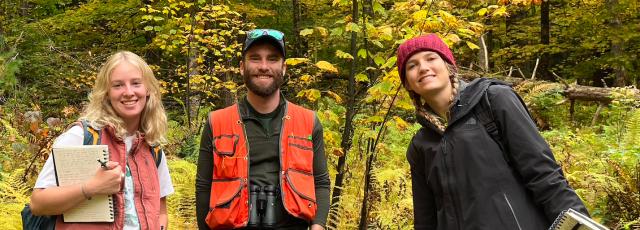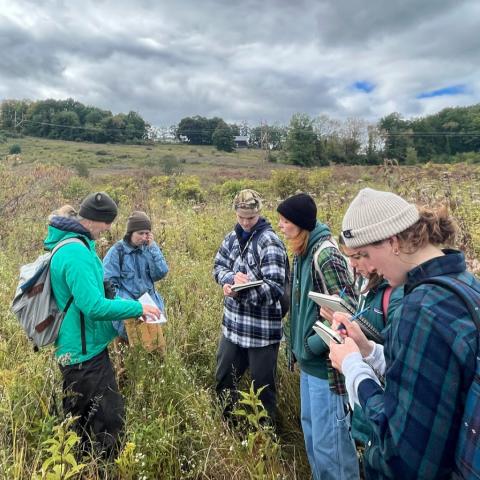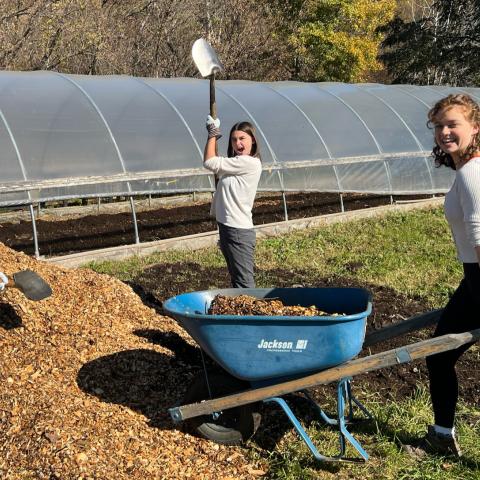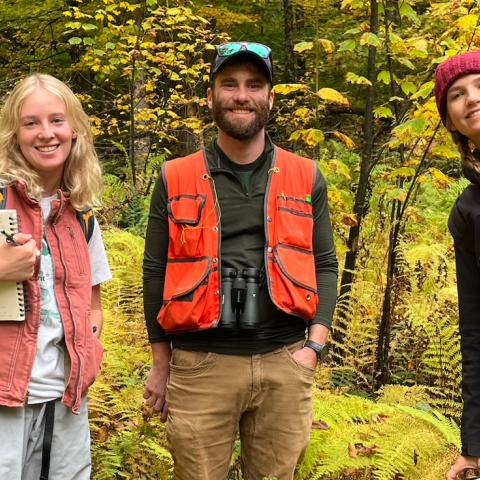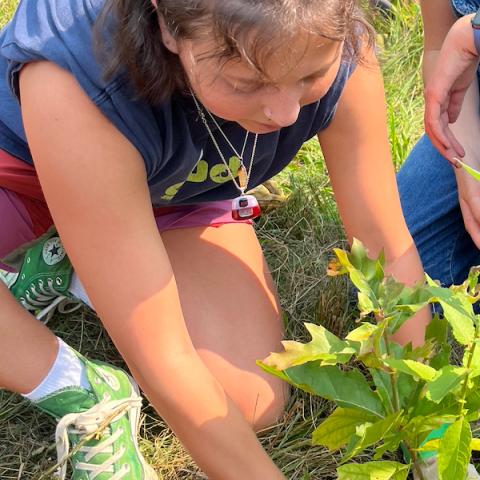Grant Year
2024, 2023, 2022Project Leader/s
Project Description
The Fellowship for Restoration Ecologies and Cultures at the University of Vermont, supported by a Thoreau Foundation grant, trains students in a holistic, integrated approach to ecological restoration.
Restoration ecology is predicated on the idea that instead of “fixing” environmental problems, humans can assist in the recovery of degraded and damaged ecosystems. Prompted by conversations with community conservation partners, UVM colleagues Cherie Morse and Amy Seidl recognized an opportunity to deepen this already rich area of practice by expanding students’ understanding of the roles that community and culture play in conservation and training them in collaborative leadership.
“Community-based conservation recognizes that culture plays a central role in human interaction with the physical environment,” Dr. Seidl explains. “It positions local, diverse community groups at the center of efforts to right environmental injustices and restore the environment. This requires direct engagement with stakeholders, meaning that people working within this field must be sensitive to cultural differences in environmental values and landscape practices. Restoration asks students to reimagine both their relationships to the natural world and to diverse human communities.”
The Fellows program grew out of conversations with the Vermont Youth Conservation Corps and Audubon Vermont, both of whom have long partnerships with UVM’s Environmental Studies Program. “These partners frequently receive requests from a variety of landowners all in need of capable, skilled undergraduates who can implement regenerative ecological systems and lead restoration crews,” explains Seidl. “They helped us identify both the need to incorporate a community-based approach to restoration, and the opportunity to help generate a green workforce.”
But there was something else going on. “When Cherie and I first dreamed this up and asked the Thoreau Foundation to support us we were in the midst of COVID,” Seidl recalls. “We were coming out of a very socially isolated time and early data was showing that this was really hard on young people, especially people who expected that in college they would develop great friendships with their peers and learn from one another in classrooms. And honestly, we were concerned for the well being of our students.”
By creating structured opportunities for students to work together with local conservation groups on tangible real-world problems, Seidl and Morse set out to address both environmental restoration and social isolation. “We've grown our list of partners from what we started with. The nonprofits that we're working with are so excited. They're willing to work with us on designing additional experiences for the students that fit the students’ schedules. What we’ve heard is that it's energizing for them to be in the field with students who are energetic, really eager to learn, passionate, committed, and willing to get dirty!”
Initially targeted to juniors, the program now welcomes sophomores. Seidl and Morse chose not to enroll seniors because they value the continuity that returning cohorts of prior year participants provides. “We want them to have time to have an experience in the field and then bring it back to UVM and apply it or connect it in some way to their course work or another experience,” Morse explains. As the program enters its third year, with additional support from the Thoreau Foundation, she says, “My impression from conversations with the previous cohort is that it's going really, really well. What is most uplifting to me is hearing what the second year students are doing now, and about the connections that they made while they were part of the Fellowship, and what they're planning to do moving forward.”
Some of the program’s graduates will go on to leadership positions with environmental organizations, whether regional or global. The program also seeks to elevate the field by providing a certification in Landscape Restoration and Culture, drawing on and developing faculty who offer courses in restoration from the dual perspectives of natural science and social science, and who support the certificate through advising and community engagement.
Recognizing that the scale and unprecedented nature of complex environmental challenges can sometimes feel overwhelming, Seidl and Morse seek to actively bring joy and awe into their curriculum through art-making, reflective practices, and plain fun. When we spoke, the two professors were preparing for an evening event that would bring together this year’s and last year’s fellows in a social setting. “My job today was to order the pizza,” Morse laughs. “I didn't even think I was going to be able to make this meeting on time, it took so long to sort that out. So my mind is not on the philosophical, it's on the delta between pepperoni and vegan! It's on the practical, like how do you make the social glue happen while you’re ordering pizza, and getting equipment to where it needs to be, and making sure your guest speakers show up.”
Because the little things matter, too, just as in any ecosystem. The Fellows program gives students a sense of agency in the face of daunting problems. Having completed restoration projects throughout New England that measurably mitigate impacts of climate change and biodiversity loss and increase human interest and understanding of natural areas, students graduate with the lived experience of positively impacting their world.
